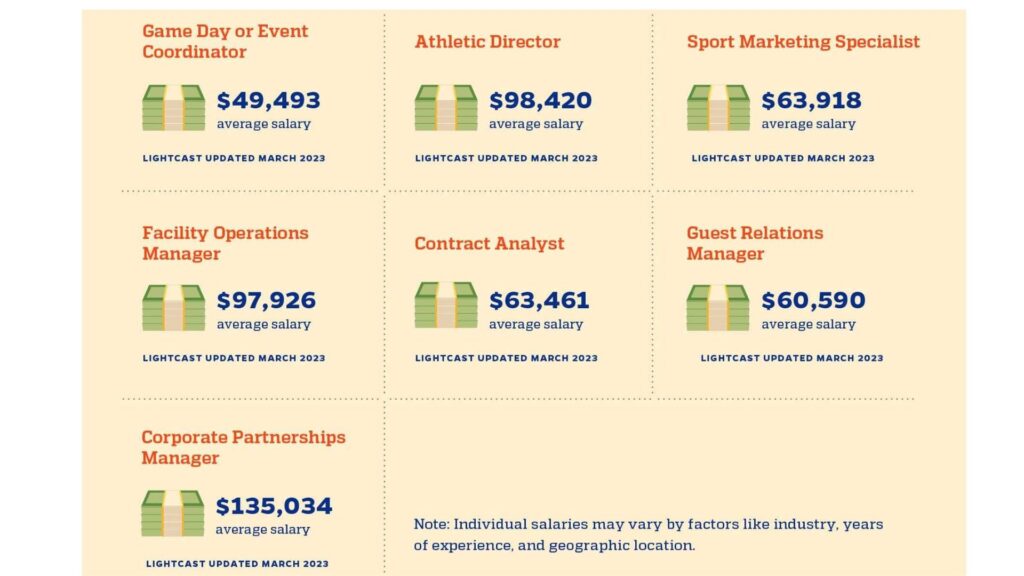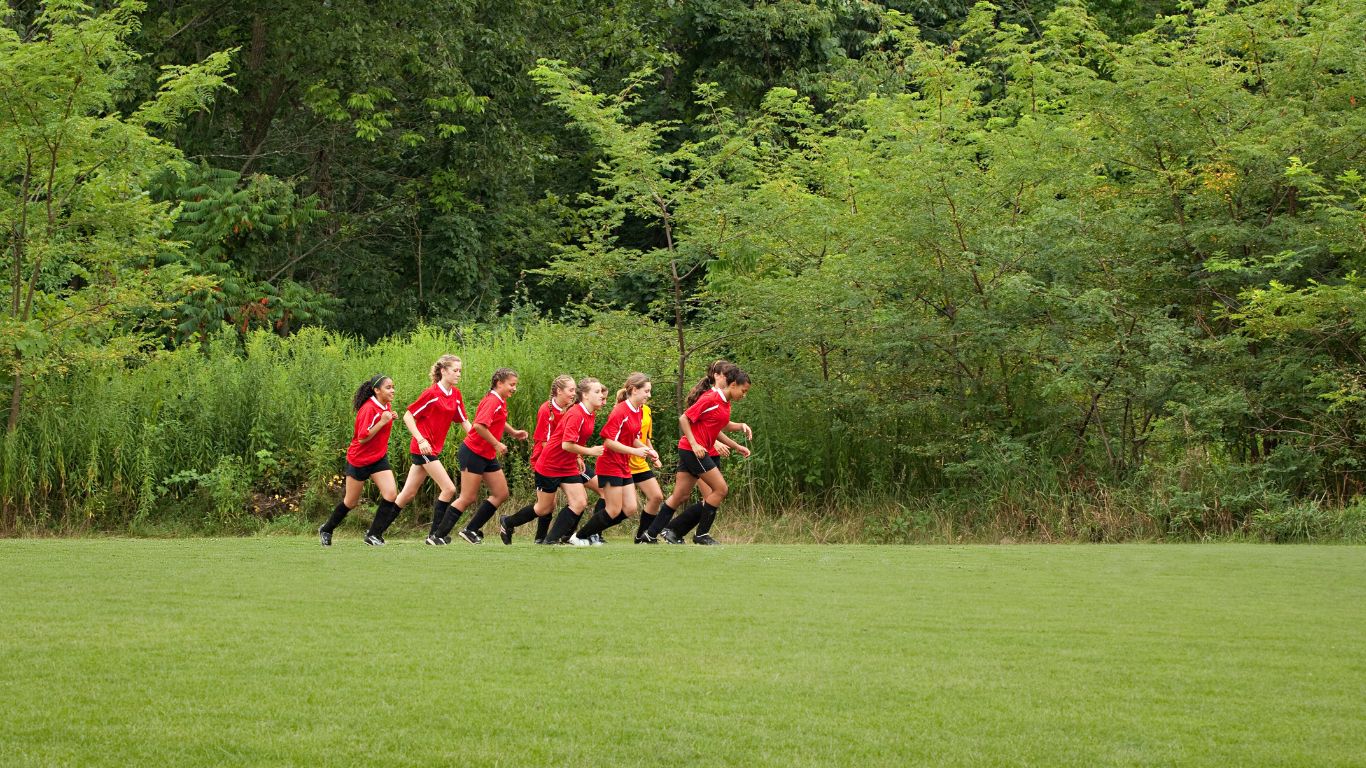To become a sports agent, you need to acquire a relevant degree and gain experience through internships or entry-level positions in sports agencies or organizations. Additionally, building strong connections and networking within the sports industry is essential to pursue a career as a sports agent.
By actively seeking opportunities, staying updated on industry trends, and continuously developing your negotiation and communication skills, you can forge a successful path as a sports agent.

Credit: sm.hhp.ufl.edu
Getting Started As A Sports Agent
Interested in becoming a sports agent? Start by acquiring a degree in sports management or a related field. Gain experience through internships and networking. Building strong communication and negotiation skills is key. Understanding the industry and creating a strong professional network will also help.
Becoming a sports agent is an exciting career path for those who have a passion for sports and a flair for negotiation. As a sports agent, you will have the opportunity to work closely with athletes, helping them navigate the complex world of contracts, endorsements, and opportunities. If you’ve ever wondered how to become a sports agent, this article will guide you through the essential steps to get started.
Determine Your Motivation
Before embarking on a career as a sports agent, it is crucial to determine your motivation for entering this industry. Are you driven by a love for sports, a desire to help athletes achieve their goals, or the thrill of negotiation? Understanding your underlying motivation will give you a clear sense of purpose and the determination to overcome the challenges that come with being a sports agent.
Education And Training
Pursuing the right education and training is vital to becoming a successful sports agent. While a degree in sports management, business, or law can provide a solid foundation, it’s not the only path to success. Consider internships, certifications, and mentorship programs in the sports industry to gain valuable hands-on experience and establish connections.
Additionally, staying up-to-date with the latest trends and legal regulations in sports management is crucial. Attend seminars, conferences, and workshops related to the field to expand your knowledge and stay ahead of the game.

Credit: www.amazon.com
Gaining Experience And Building A Network
Becoming a sports agent involves gaining experience and building a strong network in the industry, allowing you to connect with athletes and negotiate contracts on their behalf. By immersing yourself in the world of sports and establishing relationships, you can position yourself for success in this competitive field.
Internships And Volunteering
If you aspire to become a sports agent, gaining experience through internships and volunteering is a crucial step in the process. These opportunities not only provide valuable hands-on experience but also allow you to make connections in the industry that can help propel your career forward.
Internships offer a structured learning environment where you can apply your knowledge and gain practical insights into the sports agent profession. Look for internships with reputable sports agencies, professional sports teams, or sports management companies. These internships typically offer a range of responsibilities, such as assisting with contract negotiations, marketing endeavors, and client management.
While internships often have set requirements, volunteering provides a more flexible path to gaining experience. Many sports organizations, such as youth programs or local sports clubs, welcome volunteers who are passionate about helping and learning. By volunteering, you can get involved in various aspects of sports management, from organizing events to assisting with athlete development.
Networking And Building Relationships
In the sports agent industry, networking is a vital component of success. Building relationships with professionals in the field can open doors and present opportunities that you may not have otherwise. Here are some strategies to help you network effectively and create valuable connections:
- Attend industry events and conferences: Look for conferences specifically tailored to sports agents or sports management professionals. These events provide opportunities to meet and connect with industry experts, as well as gain insights through panel discussions and workshops.
- Join professional organizations: Becoming a member of industry-specific organizations such as the National Sports Agents Association (NSAA) or Sports Lawyers Association (SLA) can enhance your credibility and provide networking opportunities through events and forums.
- Utilize social media: Platforms like LinkedIn and Twitter can be powerful tools for connecting with professionals in the sports agent industry. Engage in industry-related conversations, share valuable content, and reach out to individuals who inspire you or have expertise in your desired niche.
- Cultivate relationships with mentors: Seek out experienced sports agents who are willing to mentor and guide you on your career path. Their insights and connections can prove invaluable as you navigate the competitive field of sports representation.
- Participate in informational interviews: Reach out to sports agents you admire and request informational interviews. These conversations can provide valuable insights, advice, and potentially lead to future opportunities.
Remember, building a network takes time and effort. Be proactive, genuine, and persistent in your networking efforts, and always look for ways to provide value to your connections.
Understanding The Industry
Understanding the sports agent industry is crucial for anyone aspiring to enter this competitive field. This involves grasping the complex sports business landscape, as well as developing legal and contractual knowledge to navigate the intricacies of the industry.
Sports Business Landscape
The sports business landscape encompasses a wide range of entities and professionals involved in the sports industry. It includes leagues, teams, players, sponsors, broadcasters, and various ancillary businesses. Being familiar with the structure and dynamics of these entities is essential for a sports agent to effectively operate within this competitive environment.
Legal And Contractual Knowledge
To thrive as a sports agent, one must possess a solid understanding of the legal and contractual aspects related to athlete representation. This includes knowledge of labor laws, contract negotiation, endorsements, intellectual property rights, and athlete marketing. Successfully navigating these legal and contractual complexities is vital for safeguarding the interests of both the athletes and the stakeholders involved.
Developing Necessary Skills
A career as a sports agent requires a unique set of skills that go beyond a passion for sports. Developing these necessary skills is crucial for success in the competitive world of sports representation. Two key skills that aspiring sports agents must focus on are negotiation and communication, as well as marketing and promotion. Let’s take a closer look at each of these skills and how they can be developed.
Negotiation And Communication
Effective negotiation and communication skills are vital for a sports agent as they are constantly interacting with athletes, teams, sponsors, and other influential individuals in the industry. To become an adept negotiator and communicator, consider the following:
- 1. Education and Training: Pursue a degree in sports management, business, or law, which can provide you with a solid foundation in negotiation and communication techniques.
- 2. Practice Active Listening: Be attentive and fully present during conversations and negotiations. Show empathy and understanding to build trust and facilitate effective communication.
- 3. Develop Persuasive Skills: Learn the art of persuasion by studying successful negotiators, practicing techniques, and refining your ability to convince others to agree to your terms.
- 4. Stay Updated: Keep up with industry trends and stay informed about market values, contractual norms, and legal regulations to negotiate effectively on behalf of your clients. Strong research skills are essential.
- 5. Seek Feedback: Solicit feedback from mentors, clients, and colleagues to continually improve your negotiation and communication skills. Identify areas for growth and work on them consistently.
Marketing And Promotion
In addition to negotiation and communication, sports agents should also possess strong marketing and promotion skills. This involves creating a brand for their clients and effectively marketing them to coaches, teams, sponsors, and fans. Here are some ways to develop these skills:
- 1. Understand the Market: Conduct thorough market research to identify target audiences, potential sponsors, and the current demand for specific athletes.
- 2. Build Networks: Attend industry events, join professional associations, and network with influential individuals in the sports community to expand your connections and promote your clients.
- 3. Digital Marketing: Embrace digital platforms and social media to create an online presence for your clients. Develop engaging content, utilize influencer marketing, and leverage analytics to measure the success of your marketing campaigns.
- 4. Develop Personal Branding Skills: Work on developing your own brand and personal image as a reputable sports agent, as this will enhance your credibility and attract potential clients.
- 5. Provide Value: Focus on the unique selling points of your clients and communicate these effectively to potential sponsors and teams. Showcase how your clients can bring value to their organizations.
Advancing Your Career As A Sports Agent
Becoming a sports agent is an exciting and challenging career choice. Once you have taken the necessary steps to become a sports agent, the next important phase is advancing your career. This involves continuous learning, gaining further experience, and expanding your network within the industry. Here are two key ways to advance your career as a sports agent:
Becoming Certified
Earning certifications in sports agent management not only enhances your knowledge and credibility but also sets you apart from other professionals in the field. Various organizations offer certification programs that cover essential areas such as athlete representation, contract negotiation, and endorsement deals. By undergoing these programs, you have the opportunity to deepen your understanding of the sports industry and learn from industry experts.
Here are a few notable certification programs available for aspiring sports agents:
| Program Name | Organization |
|---|---|
| National Association of Sports Agents and Athlete Representatives (NASAAR) Certification | NASAAR |
| Sports Management Worldwide (SMWW) Athlete Management Course | SMWW |
| International Sports Sciences Association (ISSA) Sports Agent Certification | ISSA |
Obtaining these certifications not only demonstrates your commitment to professional growth but also increases your chances of securing clients, as athletes often prefer working with agents who possess recognized credentials.
Seeking Mentorship
Seeking the guidance of experienced sports agents can provide valuable insights and accelerate your career growth. A mentor can provide you with industry-specific advice, help you navigate challenges, and offer guidance based on their own experience. Many sports agencies and professional networks offer mentorship programs that connect aspiring agents with established professionals.
Here are some benefits of seeking mentorship:
- Gain insider knowledge about the sports industry
- Learn negotiation strategies and best practices
- Expand your professional network through introductions and referrals
- Receive feedback and guidance on client management
Remember, building a successful career as a sports agent requires dedication, continuous learning, and a steadfast commitment to providing top-notch services to your clients. By becoming certified and seeking mentorship, you can take important steps towards advancing your career as a sports agent.
Frequently Asked Questions
What Qualifications Do You Need To Become A Sports Agent?
To become a sports agent, you need a bachelor’s degree, usually in sports management, law, or business. Additionally, gaining experience through internships and networking is beneficial for this career. Building strong negotiation skills, having a deep understanding of the sports industry, and being able to establish relationships with athletes and teams are also essential qualifications.
Is It Hard To Become A Sports Agent?
Becoming a sports agent can be challenging, but it’s not impossible with dedication and hard work. Networking and relevant education can facilitate your entry into this competitive field. Success often hinges on building strong relationships and demonstrating your value to athletes and organizations.
How Much Money Do Sports Agents Make?
Sports agents can earn a significant amount of money. The exact amount varies, but they typically make a percentage of their clients’ contracts, which can range from 3% to 10%. Additionally, agents may receive additional fees for endorsement deals and other services provided.
Do You Need To Go To Law School To Be A Sports Agent?
No, you don’t need to go to law school to be a sports agent. While a law degree can be beneficial, it is not a requirement. Building connections, gaining experience, and understanding sports business are more important factors in becoming a successful sports agent.
Conclusion
Becoming a sports agent requires dedication, perseverance, and a deep understanding of the sports industry. By networking, gaining experience, and continually improving your negotiation skills, you can work towards achieving your dream career. Embracing the challenges and staying updated with the latest trends will pave the way for a successful journey into sports agent representation.








